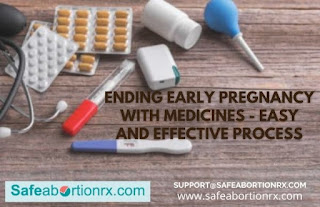High-Risk Pregnancies And Factors Affecting It
What is a high-risk pregnancy?
Pregnancy is considered a high risk when there are several complications. These may be dangerous for the mother, child, or both. In this blog, we will discuss the several reasons that can impose threats in pregnancies and how to manage them.
Maternal age
Maternal age is an important factor as there are many risks associated with age. Women in a particular age group are likely to experience certain difficulties as compared to others. Let’s understand it below:
Under the age of 17:
Pregnancies in women who are in their early teenage can be complicated as the body may not be fully ready for childbirth. Such pregnancies have a higher prospect of pregnancy-related high blood pressure, miscarriage, the mother is likely to become anemic and the pregnancy can be fatal for both mother and child.
Teenage pregnancies can hinder the education and career of the mother. Most teenage pregnancies are unplanned and unwanted. Mothers in this age group are generally financially dependent and may choose the option of abortion. To protect privacy in such cases medical abortion can be done where you can buy an abortion pills kit online with overnight shipping and do an abortion at home after consulting your doctor.
Pregnancy after the age of 35:
As women are born with the total number of eggs they will have in their lifetime the frequency and the quality of eggs start declining after the age of 35 and thus the complications in the pregnancy like miscarriage, low birth weight of the child, genetic defects like down syndrome, need of C-section and gestational diabetes increases.
Pregnancy after the age of 40:
There are increased chances of complications like the need for a C-section, the possibility of gestational diabetes and blood pressure issues, stillbirth, low birth weight, miscarriage, birth defect, having a really big baby, growth of placenta in the wrong part of the uterus, premature birth ectopic pregnancy, etc.
Pregnancy after the age of 45:
Fertility steeply decreases after 45 and increases the possibility of gestational diabetes, complications with the placenta, stillbirth, miscarriage, premature birth, chromosomal disorders in baby, need for C-section, miscarriage, ectopic pregnancy, a baby with low birth weight, etc.
Some other issues includes;
Abnormal fetus development:
When the growth of the fetus is a lot lesser than what is expected during the particular point in the pregnancy there may be possibility of abnormalities. These can be chromosomal disorders like down syndrome, Turner syndrome, potter’s syndrome. The babies with severe birth defects may not live longer or maybe stillborn.
When there are complications that can adversely impact a child’s quality of life or can be fatal for the mother or a child the parents may consider the termination of the pregnancy. Surgical abortions can be done where the doctor uses suction to remove the pregnancy from the womb.
Medical abortion may also be done where you can buy abortion pills online to do the abortion at home. Mifepristone and Misoprostol pills are taken in combination to detach the fetus from the uterus lining and remove the remains from the womb.
Pre-existing medical conditions:
If you have a medical history with organs like lungs, heart, kidney, and liver, diabetes, or autoimmune diseases these can be considered as threat factors. Sexually transmitted diseases and HIV are also considered hazardous in pregnancy.
Multiple pregnancies:
If a woman is carrying twins or more than two children in the womb it can add difficulties in pregnancies.
Gestational diabetes:
It is a form of diabetes that accrues during pregnancy and generally goes away after childbirth. If not given proper medical assistance this condition can be dangerous for both mother and child.
Pregnancy-related history:
If there is a history of diabetes or hypertension during the previous pregnancies it increases the danger of having the same issues again. Previous premature deliveries and miscarriage also impose of risk of happening again during future pregnancies.
Lifestyle:
If a woman has a habit of smoking, alcohol addiction, or drug use. All these should be stopped when you are trying to get pregnant and during the pregnancy.
Blood group:
There can be some serious complications if the blood group of the mother is Rh-negative and the blood group of the child is Rh-positive. In such a scenario you should closely follow the instructions by the doctor.
Related to weight:
Being underweight and overweight can both increase the risks in pregnancy. If you are underweight and trying to conceive you should consult the doctor and they may prescribe you a daily dose of folic acid and diet so you can conceive healthily.
If you are overweight or obese this may cause a greater growth in the child which may make delivery very difficult. There is also the possibility that the child may weigh far below the normally expected. In both cases, you should monitor the child’s growth with regular checkups during your pregnancy.
Takeaway
There are many reasons which lead to a high-risk pregnancy. The difficulties increase with age and it is important to have regular checkups and medical assistance to monitor the possible complications during the pregnancy.




Comments
Post a Comment